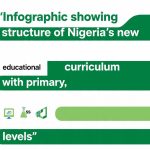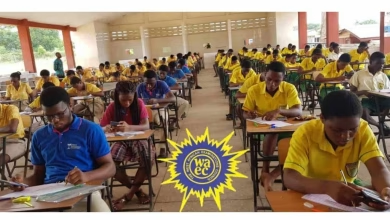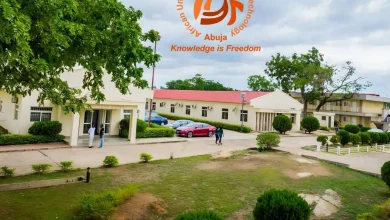Nigeria’s New Educational Curriculum 2025: Complete List of Approved Subjects

The Nigeria’s New Educational Curriculum 2025. Get the complete list of approved subjects for Basic and Senior Secondary Schools. Learn about the updated curriculum structure, subjects, and Nigeria’s educational reforms.
Nigeria’s New Educational Curriculum 2025: Complete List of Approved Subjects for Basic and Senior Secondary School
The Nigerian Educational Research and Development Council (NERDC) has officially released the approved subjects for the country’s revised basic and senior secondary education curriculum. The Executive Secretary of NERDC, Professor Salisu Shehu, signed the notice on 8th September 2025, confirming that implementation will begin at the start of each 3-year education circle (Primary 1, Primary 4, JSS1, and SS1).
Read Also: SS2 English Language Lesson Plan: Comprehensive Scheme of Work and Study Notes
This comprehensive reform introduces groundbreaking changes to Nigeria’s educational system, emphasizing skill-based learning, digital literacy, and entrepreneurship to prepare students for the 21st-century economy.

Overview of Nigeria’s New Educational Curriculum Structure
Primary Education Level (Primary 1-6)
At the primary school level, pupils in Primary 1–3 can offer a minimum of 9 and a maximum of 10 subjects, while those in Primary 4–6 can offer 10 to 12 subjects.
Primary 1-3 Core Subjects (9-10 subjects):
- English Language
- Mathematics
- Basic Science and Technology
- Social Studies
- Civic Education
- Cultural and Creative Arts
- Physical and Health Education
- Nigerian Languages (one local language)
- Christian Religious Studies/Islamic Studies/Traditional Religion
Primary 4-6 Extended Subjects (10-12 subjects):
- All Primary 1-3 subjects plus:
- Computer Studies/ICT
- Pre-vocational Studies
- French (optional)
Junior Secondary School (JSS 1-3) Curriculum
The curriculum introduces compulsory digital literacy and basic entrepreneurship at the JSS level. Students at this level will study:
Core Subjects:
- English Language
- Mathematics
- Basic Science
- Basic Technology
- Social Studies
- Civic Education
- Cultural and Creative Arts
- Physical and Health Education
- Christian Religious Studies/Islamic Studies/Traditional Religion
New Additions:
- Digital Literacy (Compulsory)
- Basic Entrepreneurship
- Nigerian Languages
- French
- Computer Studies
- Business Studies
- Home Economics
- Agricultural Science
Senior Secondary School (SS 1-3) Curriculum
Programming, artificial intelligence, and new languages feature prominently at the SSS level.
Science Track:
- Mathematics
- English Language
- Physics
- Chemistry
- Biology
- Further Mathematics
- Computer Science
- Geography
Technology Track:
- Mathematics
- English Language
- Physics
- Chemistry
- Technical Drawing
- Computer Programming
- Artificial Intelligence (New)
- Digital Literacy
Arts/Commercial Track:
- English Language
- Mathematics
- Literature in English
- Government
- Economics
- Commerce
- Accounting
- Business Management
Language Track:
- English Language
- Mathematics
- Literature in English
- Nigerian Languages
- French
- Arabic
- German (where applicable)
Key Features of the New Curriculum
1. Digital Integration
The new curriculum places significant emphasis on digital skills across all levels. The government had already updated the basic education curriculum by introducing 15 new trades, bringing areas like plumbing, event management, digital literacy, solar installation, garment making, and agriculture into classrooms.
2. Skill-Based Learning
The curriculum introduces practical skills that prepare students for immediate employment or entrepreneurship upon graduation.
3. Reduced Subject Load
The review process allows for deeper learning by reducing the number of subjects students need to study, enabling them to focus more intensively on core areas.
4. Technology and Innovation Focus
New subjects like Artificial Intelligence, Computer Programming, and Advanced Digital Literacy ensure students are prepared for the digital economy.
Implementation Timeline and Guidelines
Phased Implementation
Implementation will begin at the start of each 3-year education circle (Primary 1, Primary 4, JSS1, and SS1). This means:
- Primary 1 and 4: September 2025
- JSS 1: September 2025
- SS 1: September 2025
School Requirements
Schools are expected to:
- Train teachers on the new curriculum
- Acquire necessary equipment for practical subjects
- Update their curriculum documentation
- Implement the subject combinations as specified
Benefits of the New Curriculum
For Students
- Enhanced Digital Skills: Preparation for the digital age
- Practical Knowledge: Real-world applicable skills
- Entrepreneurship Training: Business and innovation skills
- Focused Learning: Deeper understanding through fewer subjects
For the Economy
- Skilled Workforce: Graduates ready for modern job market
- Innovation Capacity: Students trained in emerging technologies
- Reduced Skills Gap: Alignment with industry needs
- Economic Diversification: Support for various economic sectors
Challenges and Considerations
Infrastructure Requirements
Schools will need to invest in:
- Computer laboratories
- Internet connectivity
- Updated teaching materials
- Practical workshop equipment
Teacher Training
Educators require extensive training in:
- New subject areas
- Digital teaching methods
- Practical skills instruction
- Assessment techniques
Resource Allocation
The government and schools must address:
- Funding for equipment
- Teacher recruitment
- Infrastructure development
- Ongoing maintenance costs
Comparison with Previous Curriculum
Major Changes
- Reduction in Subject Load: From 15+ subjects to 9-12 subjects per level
- Technology Integration: New ICT and AI subjects
- Skill Focus: Emphasis on practical, marketable skills
- Language Enhancement: Strengthened local language instruction
- Entrepreneurship: Business skills at all levels
Continuity Elements
- Core subjects (English, Mathematics, Sciences) maintained
- Religious Studies preserved
- Physical Education continued
- Arts and Cultural studies retained
Impact on Examinations
WAEC and NECO Adjustments
Examination bodies will need to:
- Develop new question formats
- Create practical assessment methods
- Train examiners on new subjects
- Update marking schemes
University Admission Requirements
Higher institutions may need to:
- Revise admission criteria
- Recognize new subject combinations
- Adjust course prerequisites
- Update curriculum alignment
Global Best Practices Integration
The new curriculum incorporates international educational standards:
21st Century Skills
- Critical thinking
- Creativity and innovation
- Communication
- Collaboration
- Digital literacy
STEM Education
- Science, Technology, Engineering, Mathematics integration
- Practical application focus
- Research and inquiry-based learning
Entrepreneurship Education
- Business planning skills
- Financial literacy
- Market analysis capabilities
- Innovation and creativity

FAQs About Nigeria’s New Educational Curriculum
1. When will the new curriculum be fully implemented?
Implementation will begin at the start of each 3-year education circle (Primary 1, Primary 4, JSS1, and SS1) starting September 2025. Full implementation across all levels will be completed by 2027.
2. What happens to students currently in the system?
Students already in Primary 2-3, Primary 5-6, JSS 2-3, and SS 2-3 will continue with the old curriculum until they complete their current cycle. The new curriculum only applies to entry classes.
3. Will the new curriculum affect university admission requirements?
Universities will gradually adjust their admission requirements to align with the new curriculum. Students should consult their preferred institutions for specific requirements.
4. Are private schools required to implement the new curriculum?
Yes, all schools in Nigeria, both public and private, must implement the approved national curriculum as specified by NERDC.
5. What equipment do schools need for the new subjects?
Schools will need computer laboratories, internet connectivity, science equipment, and practical workshop tools for vocational subjects. The government is expected to provide guidelines for minimum requirements.
6. How will teachers be trained for the new curriculum?
NERDC and state education ministries will organize training workshops for teachers. Professional development programs will cover new subjects and teaching methodologies.
7. Will there be new textbooks for the curriculum?
Yes, new textbooks aligned with the curriculum will be developed and approved by NERDC. The government will publish a list of approved textbooks for each subject.
8. How does this compare to international curricula?
The new curriculum incorporates global best practices, emphasizing STEM education, digital literacy, and 21st-century skills similar to curricula in developed countries.
9. What about students with special needs?
The curriculum includes provisions for inclusive education, ensuring students with disabilities can access appropriate educational content and support.
10. Will examination formats change with the new curriculum?
Yes, WAEC, NECO, and other examination bodies will develop new assessment formats that include practical evaluations and project-based assessments to match the curriculum’s skill-based approach.
Conclusion
Nigeria’s new educational curriculum represents a significant leap forward in preparing students for the modern economy. The Council assured that the reforms mark a new phase in Nigeria’s educational development. By emphasizing digital literacy, practical skills, and entrepreneurship, the curriculum addresses longstanding gaps between education and employment requirements.
The success of this initiative will depend on adequate implementation support, teacher training, and infrastructure development. Schools, parents, and students must work together to ensure this transformative curriculum achieves its objectives of producing globally competitive graduates.
For updates on the curriculum implementation and official documentation, visit the Nigerian Educational Research and Development Council (NERDC) website or contact your state education ministry for specific guidelines and support.





One Comment